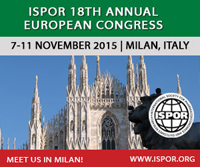Valutazione economica dello studio CARDS: un aggiornamento
DOI:
https://doi.org/10.7175/fe.v12i2S.994Keywords:
Cost-effectiveness, Atorvastatin, Type II diabetes, CARDS trialAbstract
Introduction: in the last decades, prevalence and incidence of type II diabetes mellitus have been rapidly growing worldwide. Most recent projections estimate that the number of people affected by diabetes is destined to double in 2030, producing a significant increase of the healthcare expenditure for the management of complications. Prevention of cardiovascular events in diabetes population represents a priority for decision makers, who have to evaluate the cost-effectiveness of therapeutic interventions. Objective: to provide an updated cost-effectiveness evaluation of treating type II diabetes patients with atorvastatin versus placebo, in the light of the imminent price reduction of atorvastatin due to loss of exclusivity and of other therapeutic and hospital costs. Material and Methods: we derived clinical information from the CARDS study, a randomized, multicenter clinical trial evaluating efficacy of atorvastatin versus placebo in preventing the occurrence of cardiovascular events in a cohort of type II diabetes patients without previous history of coronary events. A cost-effectiveness analysis in the perspective of the National Healthcare System (SSN) has been performed, under the hypothesis of the imminent price reduction of atorvastatin, due to the loss of exclusivity. Results: after a median follow up of 3.9 years, the number of patients with at least a major cardiovascular event requiring hospitalization was lower in the atorvastatin arm (5.8%) compared to the placebo arm (9.0%; p=0.001). Based on a cohort of 1,000 patients, treatment with atorvastatin permitted to gain 29.28 life years. The incremental cost of adding atorvastatin to the standard therapy amounted to €305,682, and was partially balanced by a cost reduction due to fewer hospitalizations, compared to the placebo arm (€ 168,313). Total direct costs were of €602.186 in the atorvastatin group and of € 464,818 in the placebo group, resulting into an incremental cost-effectiveness ratio of € 4,692 for Life Year Gained (LYG). Conclusion: the present study is an update of a previous economic analysis of the CARDS trial. Under the assumed new cost scenario, the cost-effectiveness profile of treating diabetic patients with atorvastatin becomes highly favourable, and leads to a significant reduction of the cost for Life Year Gained compared to the previous findings.Downloads
Published
2011-05-15
How to Cite
de Portu, S., Montella, S., Cortesi, P., Menditto, E., & Mantovani, L. G. (2011). Valutazione economica dello studio CARDS: un aggiornamento. Farmeconomia. Health Economics and Therapeutic Pathways, 12(2S), 35–40. https://doi.org/10.7175/fe.v12i2S.994
Issue
Section
Supplement
License
Authors who publish with this journal agree to the following terms:
- Authors retain copyright and grant the journal right of first publication with the work simultaneously licensed under a Creative Commons Attribution-NonCommercial 4.0 License that allows others to share the work with an acknowledgement of the work's authorship and initial publication in this journal.
- Authors are able to enter into separate, additional contractual arrangements for the non-exclusive distribution of the journal's published version of the work (e.g., post it to an institutional repository or publish it in a book), with an acknowledgement of its initial publication in this journal. The Publication Agreement can be downloaded here, and should be signed by the Authors and sent to the Publisher when the article has been accepted for publication in this journal.
- Authors are permitted and encouraged to post their work online (e.g., in institutional repositories or on their website) prior to and during the submission process, as it can lead to productive exchanges, as well as earlier and greater citation of published work (see The Effect of Open Access).
- Authors are permitted to post their work online after publication (the article must link to publisher version, in html format)






